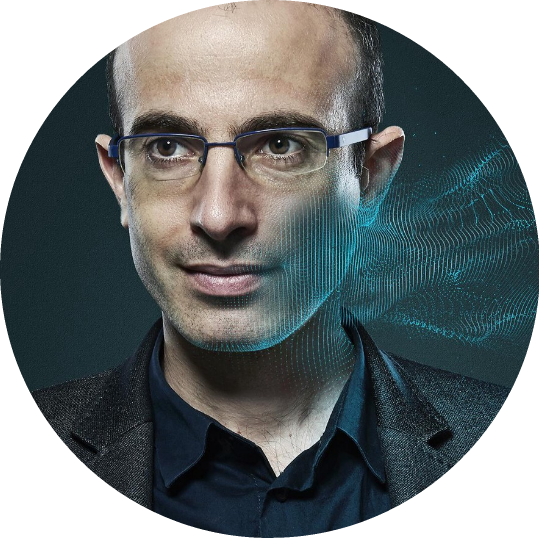Homo Deus

Sapiens explained how humankind came to rule the planet. Homo Deus examines our future. It blends science, history, philosophy, and every discipline in between, offering a vision of tomorrow that at first seems incomprehensible but soon looks undeniable: humanity will soon lose not only its dominance, but its very meaning. And we shouldn’t wait around for the resistance, either – while our favourite science fiction trope sees humans battling machines in the name of freedom and individualism, in reality these humanist myths will have long been discarded, as obsolete as cassette tapes or rain dances. This may sound alarming, but change is always frightening.
Over the past century, humankind has managed to do the impossible and rein in famine, plague and war. Today, more people die from obesity than from starvation; more people die from old age than from infectious diseases; and more people commit suicide than are killed in war. We are the only species in earth’s long history that has single-handedly changed the entire planet, and we no longer expect any higher being to shape our destinies for us.
Success breeds ambition, and humankind will next seek immortality, boundless happiness and divine powers of creation. But the pursuit of these very goals will ultimately render most human beings superfluous. So where do we go from here? For starters, we can make today’s choices with our eyes wide open to where they are leading us. We cannot stop the march of history, but we can influence its direction.
Future-casting typically assumes that tomorrow, at its heart, will look much like today – we will possess amazing new technologies, but old humanist values like liberty and equality will still guide us. Homo Deus dismantles these assumptions and opens our eyes to a vast range of alternative possibilities, with provocative arguments on every page:
- After four billion years of organic life, the era of inorganic life is now beginning.
- The main products of the twenty-first century economy will not be textiles, vehicles and weapons, but bodies, brains and minds.
- While the industrial revolution created the working class, the next big revolution will create the useless class.
- The way humans have treated animals is a good indicator for how upgraded humans will treat the rest of us.
- Radical Islam may fight rearguard actions, but the truly impactful religions will now emerge from Silicon Valley rather than the Middle East.
- Democracy and the free market will both collapse once Google and Facebook know us better than we know ourselves, and authority shifts from individual humans to networked algorithms
- We will knowingly renounce privacy in the pursuit of better health.
- Humans won’t fight machines; they will merge with them. We are heading towards marriage rather than war.
- Most of us will not get to decide how technology will affect our lives because most of us don’t understand it (how many of us voted on how the Internet would work?).
This is the shape of the new world, and the gap between those who get on-board and those left behind will be bigger than the gap between industrial empires and agrarian tribes, bigger even than the gap between Sapiens and Neanderthals. This is the next stage of evolution. This is Homo Deus.